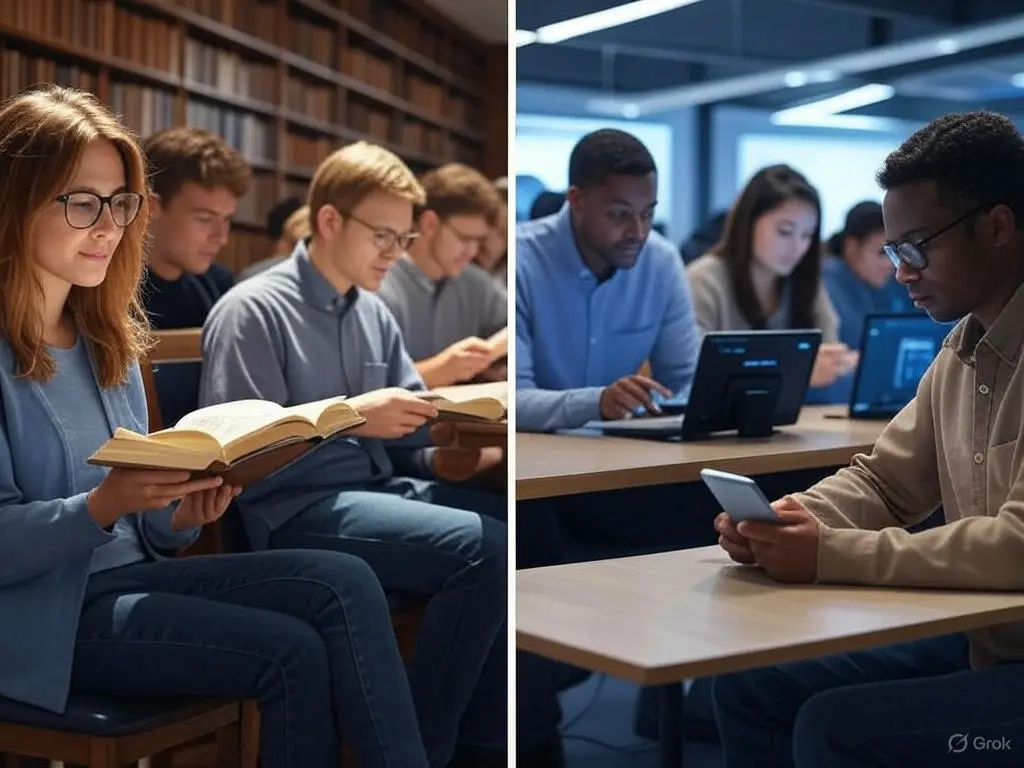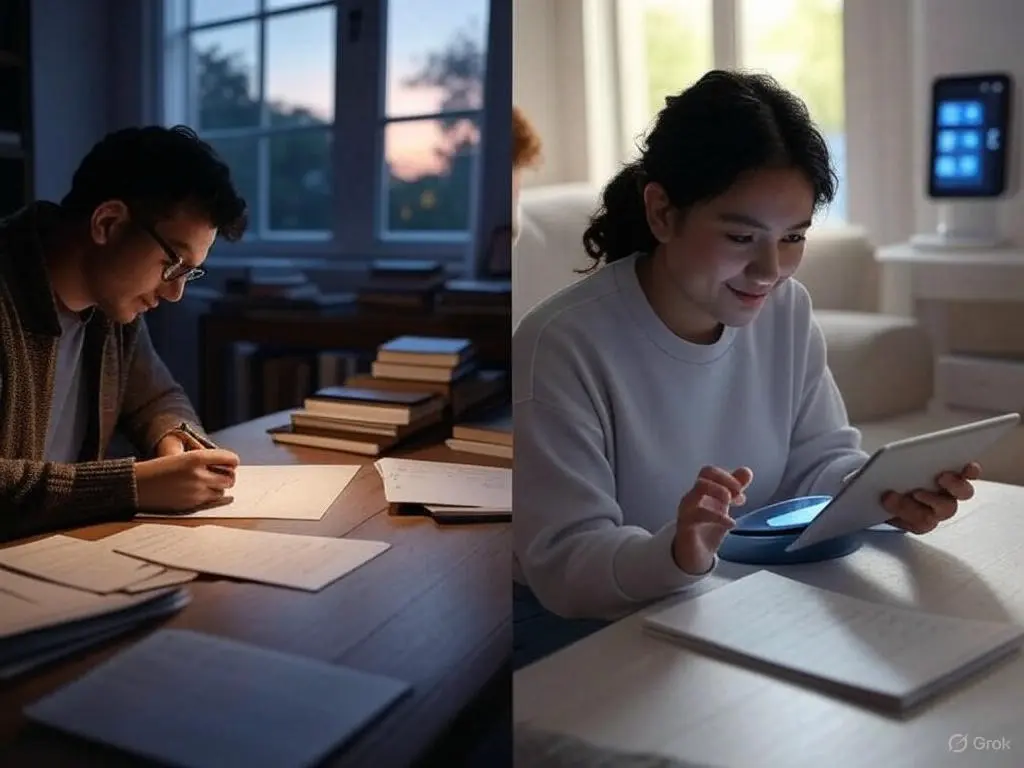Discover how AI has transformed the way humans live and work, from smart homes to automated workplaces. Learn about AI’s benefits, challenges, and future trends in this comprehensive guide.
How AI Has Transformed the Way Humans Live and Work
Artificial intelligence (AI) is everywhere, changing how we live and work. From virtual assistants to automated offices, how AI has transformed the way humans live and work is remarkable. But what exactly is AI, and how does it impact our daily routines and jobs? This article explores AI’s transformations, benefits, challenges, and future possibilities.
What is Artificial Intelligence?
Artificial intelligence is when computers perform tasks that usually require human thinking, like learning or problem-solving. In simple terms, AI makes machines smart. You use AI daily, whether it’s asking Alexa for the weather or using Grammarly to check your writing. For a deeper look, check out IBM’s AI overview.
How AI Has Transformed Daily Life
How AI has transformed the way humans live and work starts with daily life. AI makes routines easier, faster, and more personalized. Here are four key areas:
Communication
AI powers instant messaging, video calls, and translation apps like Google Translate. These tools connect people globally and break language barriers. Social media platforms use AI to suggest friends or posts, enhancing connectivity.
Home and Personal Life
AI-driven smart devices, like Nest thermostats or Philips Hue lights, make homes more comfortable and efficient. Virtual assistants like Siri or Alexa handle tasks like setting alarms or ordering groceries, saving time. How AI has transformed the way humans live and work is clear in these conveniences.
Healthcare
AI improves healthcare through faster diagnostics and personalized care. Wearable devices like Fitbit track health data, while AI tools predict diseases. Telemedicine platforms connect patients with doctors remotely. The World Health Organization notes AI’s role in expanding healthcare access.
Entertainment
AI transforms entertainment with personalized recommendations on Netflix or Spotify. It also creates music, art, and immersive gaming experiences. According to TechCrunch, AI is reshaping creative industries.
How AI Has Transformed Work
How AI has transformed the way humans live and work extends to workplaces, boosting efficiency and innovation. Here are three major changes:
Automation and Efficiency
AI automates repetitive tasks like data entry or customer support. Chatbots handle inquiries, and tools like Salesforce analyze data for better decisions. A Forbes report states that 60% of companies use AI to improve operations.
Remote Work and Collaboration
AI enhances remote work with features like Zoom’s noise cancellation or Microsoft Teams’ meeting summaries. Project management tools like Asana use AI to prioritize tasks, making teams more productive.
Innovation and Creativity
AI drives innovation by aiding product design and content creation. Companies like Adobe use AI to streamline graphic design, while OpenAI’s tools generate text or code. How AI has transformed the way humans live and work shines through these creative advancements.
Benefits of AI Transformations
How AI has transformed the way humans live and work brings many benefits:
- Efficiency: AI speeds up tasks, from scheduling to diagnostics.
- Personalization: AI tailors experiences, like playlists or work tools, to individual needs.
- Accessibility: AI makes technology usable for everyone, including people with disabilities.
- Innovation: AI fuels new products and creative solutions.
For example, AI translation apps help travelers communicate, while AI tools assist businesses in launching products faster.
Challenges of AI Transformations
Despite its advantages, how AI has transformed the way humans live and work raises concerns. Privacy is a major issue, as AI collects vast data. Job displacement from automation worries workers, and ethical issues, like biased algorithms, need addressing. The EU AI Act aims to regulate AI responsibly, as noted by The Guardian.
The Future of AI in Human Life and Work
How AI has transformed the way humans live and work is just the beginning. In the future, AI could create smarter workplaces, advance healthcare with predictive tools, and personalize education. Emerging trends include AI for sustainability and mental health support. A McKinsey report predicts AI will add trillions to the global economy by 2030.
Conclusion
How AI has transformed the way humans live and work is profound, from smarter homes to efficient workplaces. AI brings convenience, innovation, and accessibility, though challenges like privacy remain. As AI evolves, its impact will grow. Try AI tools in your life or work and share your experiences in the comments!
FAQs
1. What is meant by how AI has transformed the way humans live and work?
AI has changed daily life and work by automating tasks, personalizing experiences, and improving efficiency in areas like healthcare, communication, and workplaces.
2. How does AI make daily life easier?
AI simplifies tasks with tools like virtual assistants, smart devices, and personalized apps, saving time and effort.
3. How has AI changed the workplace?
AI automates tasks, enhances remote work, and drives innovation, as seen in tools like chatbots and design software.
4. What are the risks of AI in daily life and work?
AI raises privacy, job loss, and ethical concerns, but regulations like the EU AI Act aim to address them, per The Guardian.
5. What is the future of AI in human lifestyles and work?
AI will likely advance healthcare, education, and sustainability, creating smarter, more efficient lives and workplaces, according to McKinsey.

